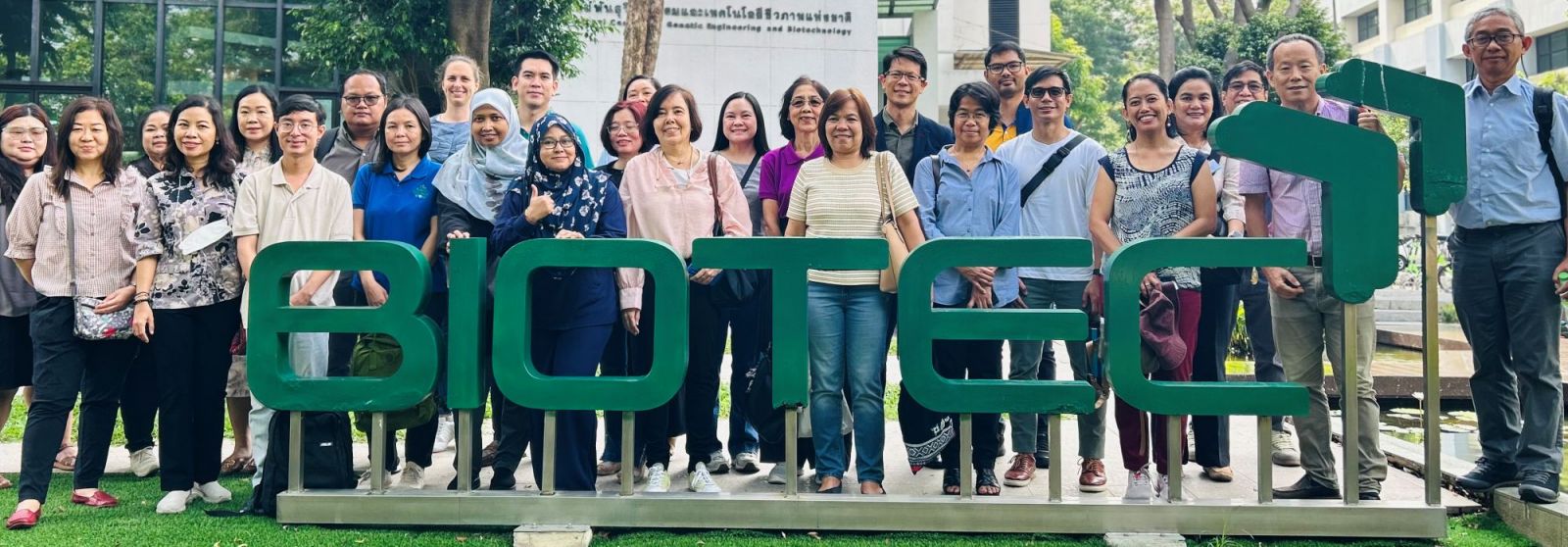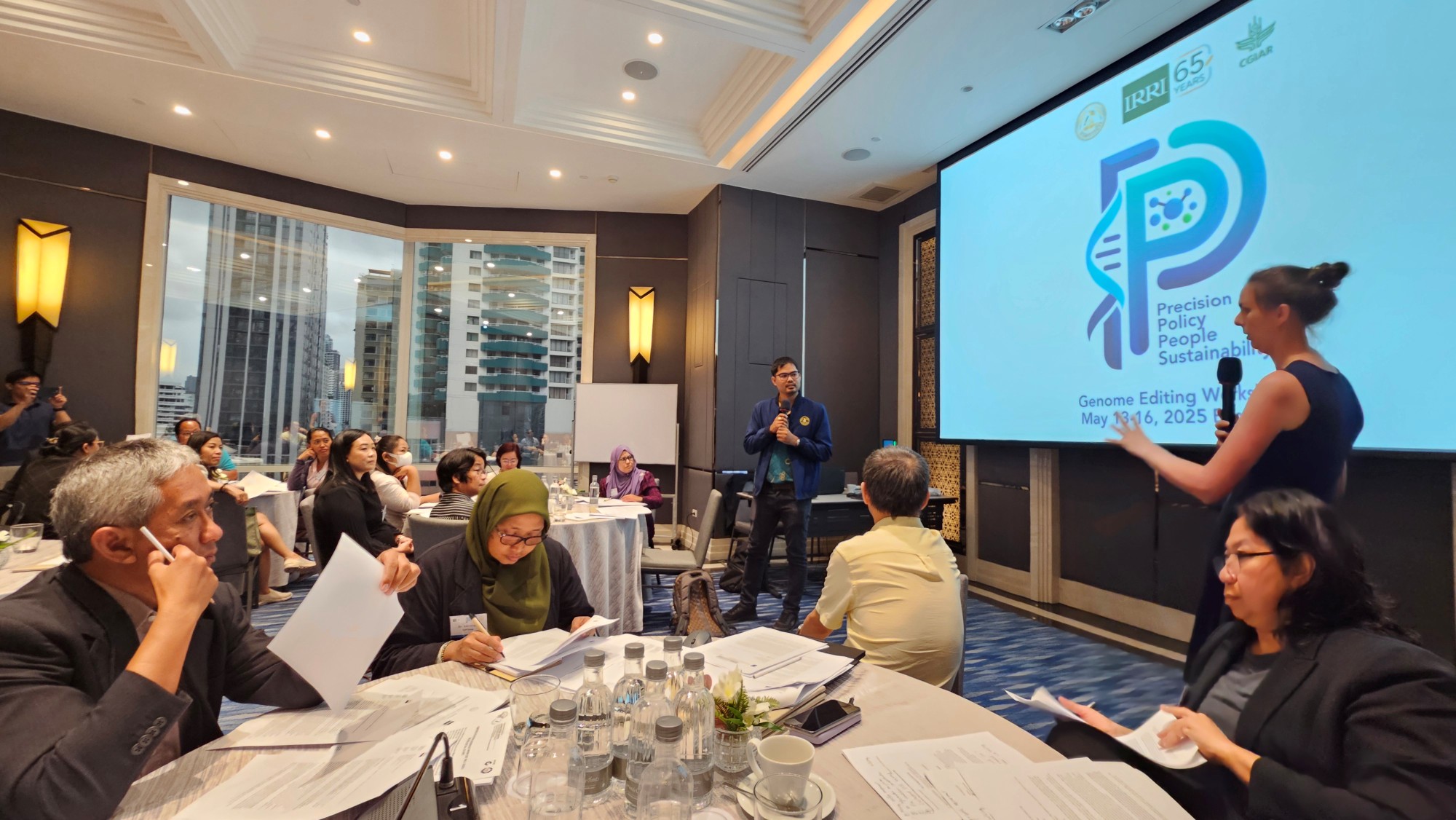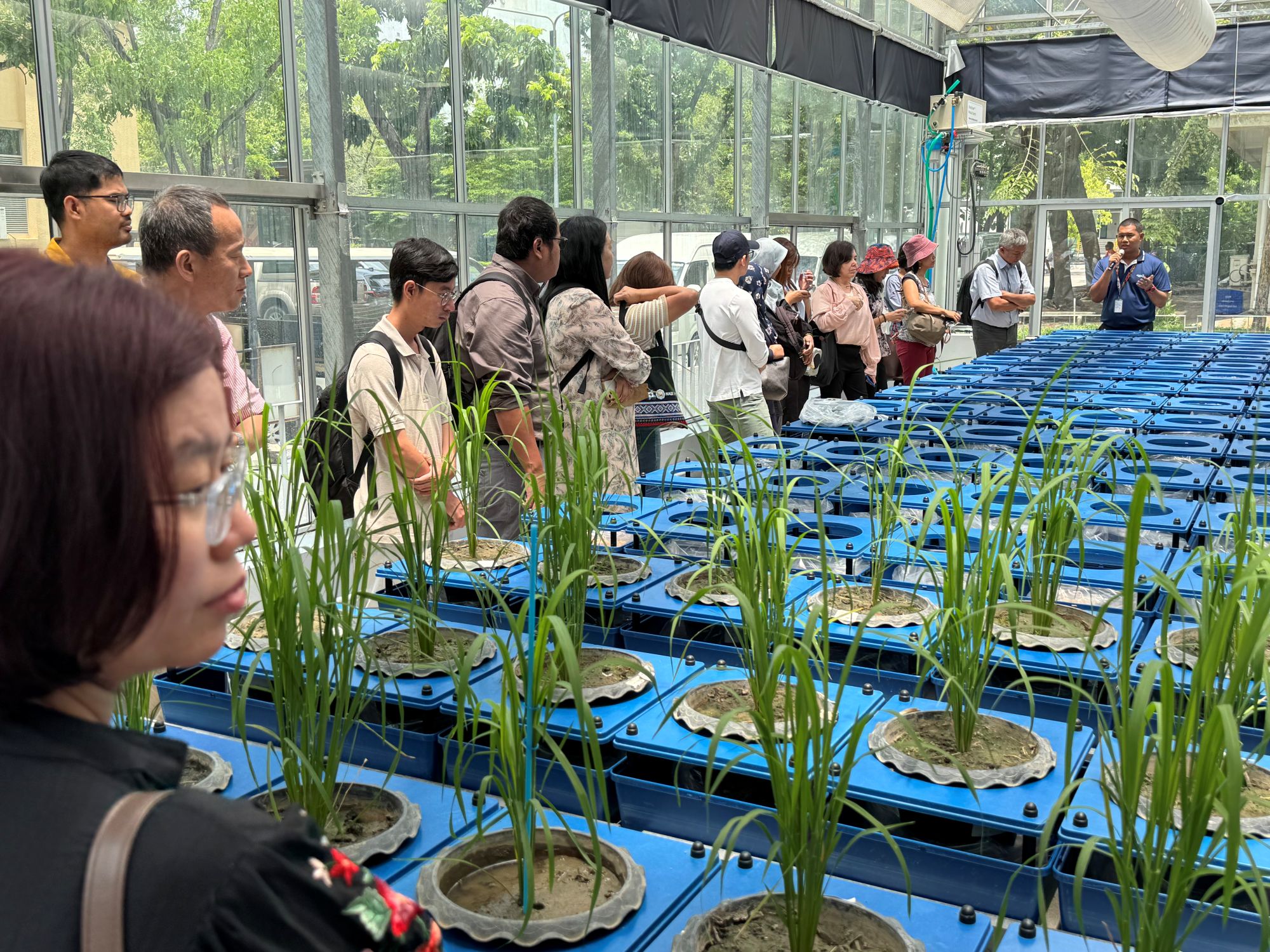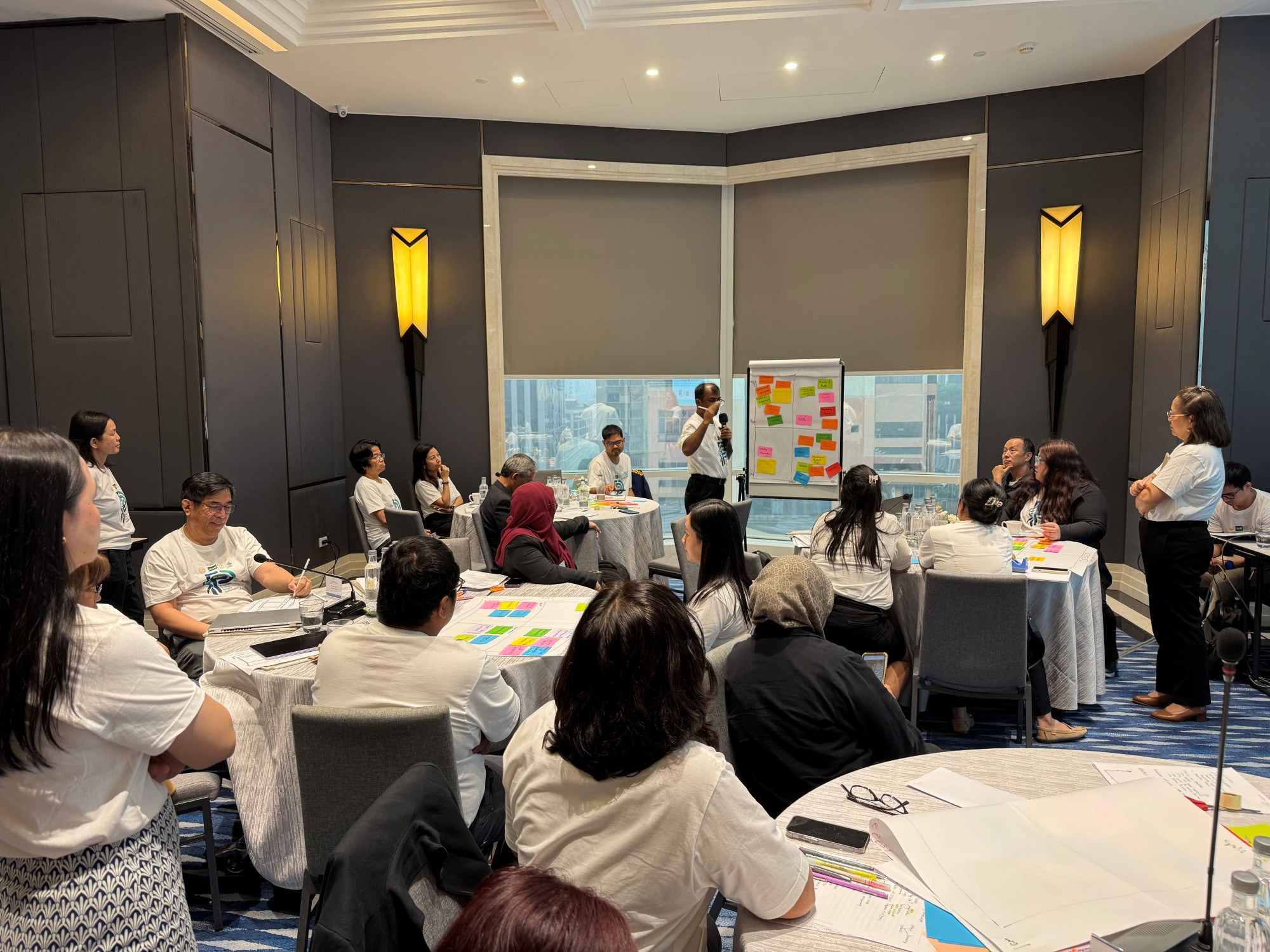Genome Editing Workshop Equips Scientists for Precision and Responsibility

Bangkok, Thailand (May 13-16, 2025) – "How can we clearly explain genome editing, and encourage collaborations to use it effectively and create lasting impact?” This question has been looming over conversations as a dedicated group of scientists, regulators, and communicators from across Asia gathered in Bangkok for the “Precision, Policy, and People: A Genome Editing Workshop for Crop Improvement.” The four-day program aimed to equip stakeholders with the necessary tools, policy understanding, and effective communication strategies to advance genome editing in agriculture in a responsible manner.
Co-organized by the CGIAR Genome Editing Initiative, the International Rice Research Institute (IRRI), the Bureau of Rice Research Department (BRRD) of Thailand, and partner CGIAR centers, with generous support from the Gates Foundation, the U.S. Government, FCDO, and ACIAR, this workshop marked a significant step forward in fostering regional capacity and collaboration to deliver genome editing innovations that are beneficial for farmers and consumers alike.

"Science, Policy, and People" – A United Goal
In her opening remarks, Dr. Inez Slamet-Loedin, leader of the CGIAR Genome Editing Initiative, emphasized the importance of a holistic approach:
“Unlocking the potential of genome editing begins with a strong foundation in science—ensuring precision in our tools and their application. Equally essential are supportive policies and a community built on trust, transparency, and a shared purpose.”
She noted that genome editing represents not just a scientific advancement, but a collective commitment. “Our aspirations involve deepening our technical knowledge, promoting collaboration, and creating enabling environments throughout the region,” she explained. “Together, we aim to discuss not only the capabilities of genome editing but also how we can equitably and responsibly share its advantages.”
An Inclusive Program of Learning and Dialogue
The workshop centered around three main pillars: precision (science and technology), policy (regulatory and stewardship systems), and people (public engagement and collaboration).
Participants were introduced to the basics of genome editing by Dr. Slamet-Loedin and Dr. Sung-Ryul Kim, engaging in hands-on sessions covering CRISPR-Cas systems, base and prime editing, and target site design. Practical tools, including genome browsers and guide RNA design software, were demonstrated in interactive sessions led by Erwin Arcillas and Dr. Yvonne Ludwig, combining practical skills with foundational knowledge.
Regional Perspectives on Regulation, Stewardship and IP
The workshop also featured an in-depth exploration of biosafety and regulatory frameworks, with insights from national experts across Thailand, Bangladesh, the Philippines, Indonesia, and Vietnam. Global perspectives from Petra Jorasch (Euroseeds) about regulatory, and Chris Holdegreve (GSG) about Excellence through Stewardship and the newly established plant breeding innovation management program (PBI), highlighted the need for harmonized, science-based regulations aimed at encouraging innovation while maintaining safety and public trust. Furthermore, Judith Chambers (IFPRI) and Jose Falck-Zepeda (IFPRI) presented on policy and intellectual property landscape surrounding the genome editing technology.

Local Innovations in Action
The third day invited participants to step outside the meeting room and explore Thailand’s biotech landscape, featuring lab tours at BIOTEC-NSTDA and field visits to the Pathum Thani Rice Research Center (BRRD). These experiences showcased how genome editing can be effectively integrated into real-world breeding programs, particularly for staple crops like rice.

Nurturing Champions of Responsible Innovation
The final day concentrated on collaborative communication strategies where participants learned how to identify their priority stakeholders, and crafted key messages tailored to each. Sharing of experiences was a large part of the program as the participants pulled anecdotes from their real-life experiences that were used to generate recommendations. This activity not only reinforced learning but also celebrated the diverse perspectives and talents within the regional genome editing community. This session was led by communication specialists Xenina Ibabao and Aileen Garcia of IRRI, with support from Donna Ramaeker-Zahn from IFPRI.
Building a Stronger Regional Foundation
As genome editing technologies continue to develop, this workshop served as more than just training—it became a platform for nurturing regional leadership, encouraging cross-sector collaboration, and aligning efforts to ensure that genome editing yields meaningful benefits. Participants departed with renewed commitment and a useful set of tools and techniques to surge efforts in helping Genome Editing gain traction in their countries.